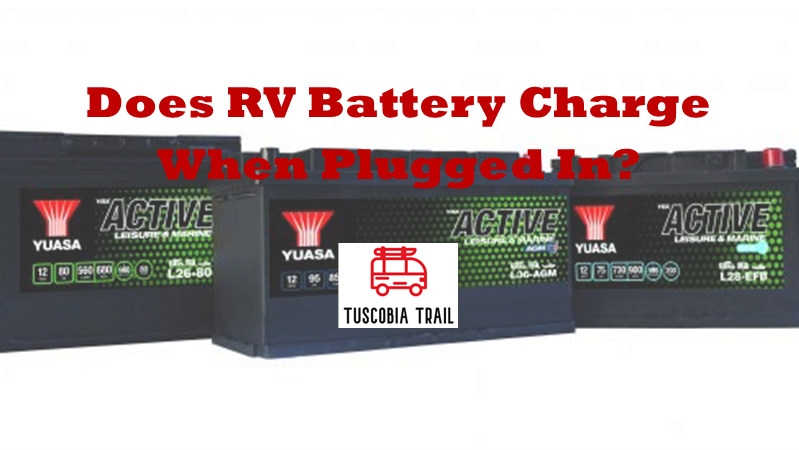When you own an RV, understanding how your batteries charge is crucial for maintaining power on the road. You’ll need to know does an RV battery charge when plugged in?
Having the right knowledge of your electrical system ensures that all RV owners can enjoy their travels without unexpected power issues.
When an RV is plugged into shore power, the house batteries typically begin charging immediately. This process is facilitated by the RV’s built-in converter, which transforms the incoming power.
This converted power not only charges the batteries but also powers the RV’s electrical systems.
Does An RV Battery Charge When Plugged Into Shore Power?
Yes, RV house batteries do charge when connected to shore power.
The built-in converter in most modern RVs transforms the incoming 120V AC power into 12V DC power, which charges the batteries and powers the RV’s electrical systems.
It’s important to note that not all RVs charge the chassis (engine) battery when plugged in. This varies depending on the RV model and electrical system design.
How RV Electrical Systems Work
RVs typically have two types of electrical systems – a 12V DC system and 120V or 240V AC system.
In a 12V DC system, electrics are powered by the house batteries. This runs essential items like lights, water pumps and fans.
When it comes to 120V and 240V AC systems, this powers larger appliances like air conditioners and microwaves when connected to shore power or running a generator.
An inverter can convert 12V DC to 120V or 240V AC, allowing you to use some AC appliances off the batteries, though this can quickly drain them so you will need solar to top it up.
Alternative Charging Methods For An RV
While shore power is the most common method for charging RV batteries, alternative options exist.
Many RVs come equipped with built-in generators that can charge batteries and power appliances. Additionally, some RVs are designed to charge house batteries while driving by using the vehicle’s alternator.
Solar panels are also becoming an increasingly popular option, especially for those who enjoy off-grid camping.
- Generator: Many RVs have built-in generators that can charge batteries and power appliances.
- Solar panels: An increasingly popular option for off-grid camping.
- Vehicle alternator: Some RVs charge the house batteries while driving.
FAQs
Should I leave my RV plugged in all the time?
While modern RVs have smart chargers to prevent overcharging, constantly keeping batteries at full charge can reduce their lifespan. It’s best to disconnect periodically and allow some discharge.
How long does it take to charge RV batteries on shore power?
Charging time varies depending on battery size and state of charge, but typically ranges from 10-40 hours for a full charge.
Can I use an external charger while connected to shore power?
It’s generally not necessary and could potentially cause issues. If you do, disconnect the positive battery cable from the RV’s electrical system first to avoid conflicts.
Do RV batteries charge while driving?
In many cases, yes. The vehicle’s alternator can charge both the chassis and house batteries, though the charging rate may be slow.
How can I monitor my battery’s charge level?
Many RVs come with battery monitors that display charge status. Aftermarket monitors are also available for more precise readings.
Is it safe to charge batteries in cold weather?
Charging batteries in very cold temperatures can be harmful. If storing your RV in winter, it’s best to remove the batteries and store them in a temperature-controlled environment.
